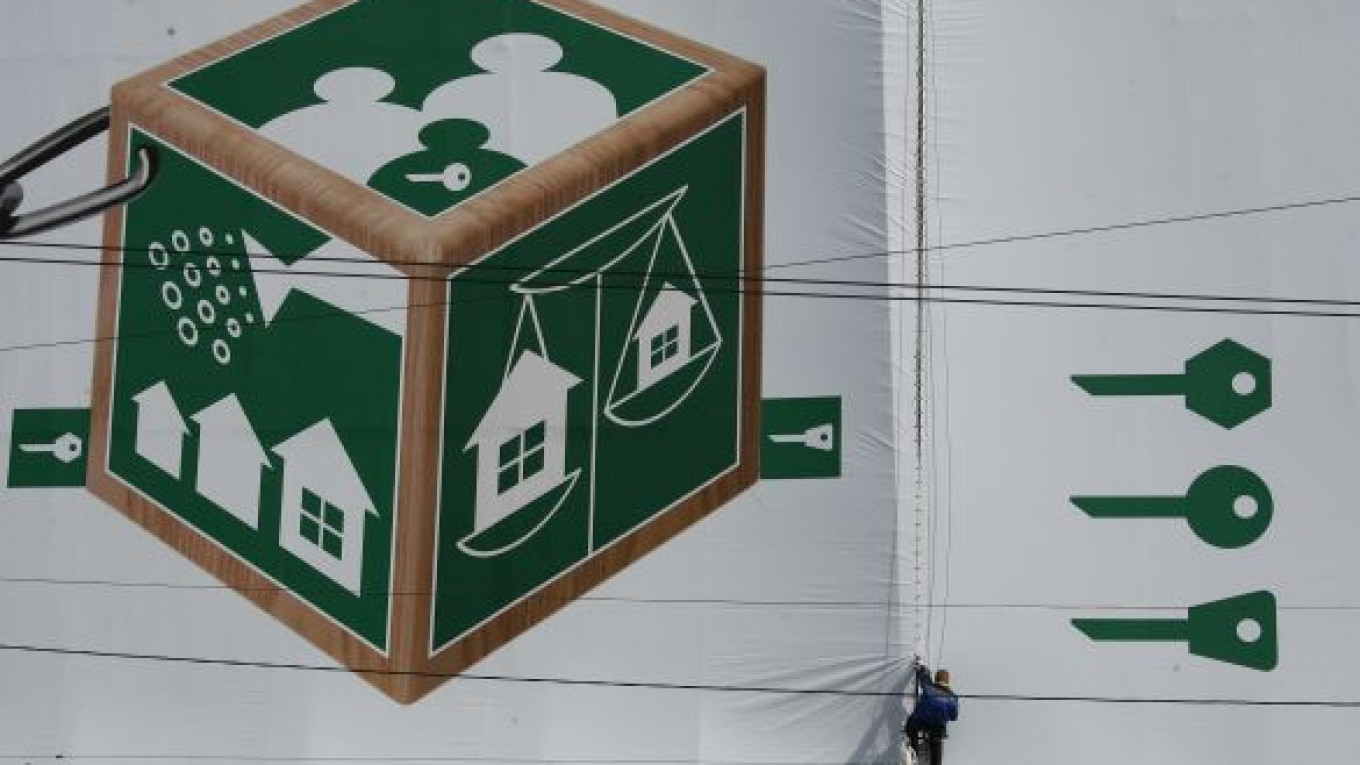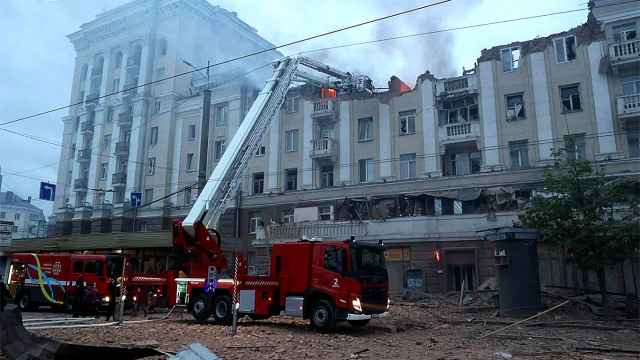While the cold continues on Moscow's snow-slicked streets, apartment prices have stayed hot in the capital as the city's construction restrictions force high prices for elite apartments and unmet need keeps middle-class housing in demand.
What's more, while demand is putting pressure on both wealthy and middle-class buyers, it is piquing interest among developers, analysts said in interviews.
The top of the market — newly built or reconstructed apartments in the center — has been squeezed by Mayor Sergei Sobyanin's ban within the Third Transportation Ring. Since May 2011, Sobyanin has suspended the issuing of building permits in the city center and ordered a review of previously issued permits.
That decision "has limited opportunities for making returns in commercial [real estate] and has redirected some of the developers toward residential" real estate, said Andrei Postnikov, a regional director for Russia and the CIS at Jones Lang LaSalle.
Because Sobyanin's strictures are squeezing the supply of elite apartments, they are also driving up prices. Olga Tarakanova, Knight Frank's head of city sales, also cited Sobyanin's construction ban in the city center as a reason of the pressure on the elite residential market there.
Leonid Kaprov, director of Hals-Development's commercial management and housing sales department, said Sobyanin's ban "caused a supply deficit, especially in elite and upper-middle middle-class" segments.
Developers are putting up new buildings in both the high and middle segments of Moscow's market, however.
Among the companies advised by Jones Lang LaSalle, a commercial real estate consultant, "there is a strong interest overall in residential," Postnikov said. Developers are seeking middle-class wallets with large-scale, economy-class complexes, including ones beyond the Moscow Ring Road. The middle segment will continue to be a seller's market. "We believe that the market is quite strong," Postnikov said, as well as "quite stable."
Optimism among prospective homebuyers has increased. "If it was still difficult last year for people to plan on a mortgage or other debt obligations, then clients are now looking to the future with more confidence," Kaprov said by e-mail.
With middle-class housing, there are factors at play that don't stem from the mayor, Postnikov said: Apartments are selling at relatively high prices, while the federal government is buying up blocs of apartments for social benefit programs.
Postnikov predicted that, in 2012, developers will keep their interest in the residential market, especially since apartments can be sold before they are even built, giving developers upfront financing and minimizes their borrowing needs.
Knight Frank is forecasting a 10 percent to 20 percent rise in prices for elite residential properties in Moscow this year driven by the lack of supply, while Kaprov at Hals-Development said prices of both elite and upper-middle-class housing will systematically increase within the bounds of inflation growth and won't rise more than 12 percent in the year.






